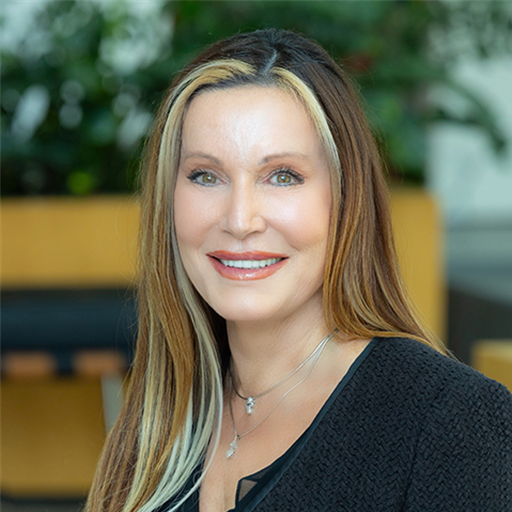In the golden years of life, our elders should be enjoying the fruits of their lifelong labors – surrounded by the warmth of their families and receiving the respect and care they rightfully deserve.
Too often, however, a shadow of financial exploitation obscures such an idyllic image.
Take the case of Eleanor, an 82-year-old widow with a gentle demeanor and a trusting heart. She had a son with special needs, so enlisted the help of a family friend to manage their savings. As recounted to me years later, Eleanor discovered that her trusted advisor had been siphoning funds, leaving their financial security in jeopardy.
In fact, her story serves as not just a cautionary tale. It's also a stark reminder of the vulnerability our seniors face and the urgency with which we need to act to protect them.
A Growing Concern
The financial exploitation of vulnerable adults, especially seniors, was dubbed by MetLife researchers as "The Crime of the 21st Century." In their comprehensive study, which was first published in 2011 and still stands today as a frequently cited report on elder financial abuse, they warned such an ominous shadow wasn't likely to fade anytime soon. As the study put it:
"Elder financial abuse continues to decimate incomes both great and small, engenders health care inequities, fractures families, reduces available health care options and increases rates of mental health issues among elders. Elder financial abuse invariably results in losses of human rights and dignity. Despite growing public awareness from a parade of high-profile financial abuse victims, it remains underreported, under-recognized, and under-prosecuted." 1
According to the FBI's Internet Crime Complaint Center, reported losses from elder financial abuse increased by more than 80% in 2022, the most recent year with complete data. 2
Indeed, the U.S. Department of Justice's Office for Victims of Crime reports that as many as five million elders can be suspected to be victims of abuse each year. In its 2023 Report to the Nation, the agency noted:
"The effects of these crimes can be devastating, and older adults may be targeted at rates that outpace the services available to help the growing number of victims. Those often most at risk of victimization experience barriers to accessing services including social isolation, cognitive impairment, physical limitations, and depression." 3
Understanding Financial Exploitation
Financial exploitation occurs when a person misuses or takes the assets of a vulnerable adult for his or her own personal benefit, often without the explicit knowledge or consent of the vulnerable adult.
Such exploitation deprives the victim of essential financial resources for personal needs.
Vulnerable adults include: individuals over 60 years old (seniors); adults with disabilities; and those suffering from conditions that impair their cognitive abilities such as Alzheimer's, dementia or substance abuse.
How Big is the Problem?
Depending on the study considered, estimates of annual losses from financial exploitation of seniors range anywhere from around $3 billion to nearly $40 billion a year. The relatively large spread in those numbers reflects a rather sobering concern by authorities – i.e., many of these cases go unreported.
This is often credited by law enforcement officials to a sense of shame on the part of those inflicted by such crimes. Also, researchers point to many incidents coming from interactions with someone the elderly victim knows. As a result, financial exploitation is typically broken down into two broad categories:
- Exploitation by someone known to the victim, such as a family member, caregiver or financial advisor.
- Exploitation and abuse by a stranger such as a scam artist or fraudulent salesman.
With the number of Americans aged 65 and older projected to more than double to more than 98 million by 2060, this problem only figures to become more prominent in the years to come.

Exploitation Methods by Known People
Let's take a closer look at the most likely scenario that elder abuse researchers have found over the years – namely, those people known to the victim are more likely to be the perpetrators of financial exploitation.
Some methods used by these individuals often include:
- Obtaining money or property through undue influence, misrepresentation or fraud.
- Coercing the elder into signing over investments, real estate, or other assets through manipulation, intimidation or threats.
- Improper or fraudulent use of power of attorney or fiduciary authority.
- Obtaining access to an elder's Social Security checks, pension payments, checking or savings account, credit card or ATM card ‑‑ or withholding portions of checks cashed for an elder.
- Charging an elder excessive rent or unreasonable fees for basic care services such as transportation, food or medicine.
Exploitation Methods by Strangers
At the same time, experts warn that seniors need to be aware of potential criminal activity by those outside of their immediate family or circle of friends.
Four of the more common exploitation methods used by these so-called unknown individuals can take the form of:
1.) The bank examiner scam. This is where a perpetrator poses as a bank examiner and convinces an elder to make a large withdrawal to help catch a dishonest bank employee.
2.) A pigeon drop. The perpetrator claims to have found a sum of money and offers to split it with an elder, provided the elder first withdraws an amount equal to her share as a sign of good faith.
3.) Telemarketing and mail fraud. The perpetrator persuades an elder to buy a valueless or non-existent product, donate to a fraudulent charity, or invest in a fictitious enterprise.
4.) Unsolicited work. The perpetrator arrives unexpectedly at an elder's residence and offers to perform work for a reasonable fee; after starting the work, the perpetrator insists the elder pay more than originally agreed before the work will be completed.
The Special Needs Dimension
For families with special needs members, the stakes are even higher.
These families often rely on carefully constructed financial plans to ensure the long-term care and well-being of their loved ones. When these plans are disrupted by exploitation, the consequences can be devastating.
In such cases, recognizing and acting in a proactive manner can prove critical to making sure any financial pain and suffering is minimized or completely absolved before it takes place.
Recognizing the Red Flags
Awareness is the first line of defense. Signs of financial exploitation can range from sudden changes in bank account balances or unexplained withdrawals to more subtle cues like a senior's sudden reluctance to discuss financial matters.
From our own experience working with special needs clients, we find it's crucial for families to remain vigilant and engaged in open conversations about financial health and well-being.
Preventative Measures
At IFA, we recommend several strategies to help safeguard against financial exploitation. These include:
- Establish a Trust: A special needs trust can provide a secure financial structure for managing the resources of a family member with special needs without compromising their eligibility for benefits.
- Durable Power of Attorney: Assigning a trusted individual to make decisions if a senior is unable can prevent unauthorized access to their finances.
- Regular Financial Reviews: Keeping a close eye on accounts and transactions can help spot any irregularities early on.
- Educate and Empower: Teaching seniors about common scams and encouraging them to question suspicious requests for money or personal information can go a long way in preventing exploitation.
A Call to Action
The fight against financial exploitation of vulnerable adults requires a collective effort. Financial institutions, legal bodies and communities must collaborate to create robust protective measures.
For families, especially those with special needs members, the imperative is clear: stay informed, stay vigilant and stay connected.
As we navigate the complexities of protecting our most vulnerable, let Eleanor's story be a beacon, guiding us towards a future where our seniors can live without fear of exploitation.
It's a moral imperative that we, as a society, must embrace and act upon with urgency and compassion.
Resources and Support
For those seeking assistance or suspecting financial exploitation, it's also important to note that resources are available to help deal with such unforeseen events. A few tips along these lines are:
- Find your local Adult Protective Services (APS) on a non-emergency number for local police or the Sheriff's office to file a report. You can also call directly the national APS 24-hour hotline at: 800-451-5155. This group was created to provide support and intervention for suspected cases of abuse or exploitation.
- The National Center on Elder Abuse (NCEA). It offers detailed information and a number of other resources to help consumers understand and combat elder abuse.
- In an emergency situation in which you're not sure what to do, call 911.
Another possible piece of advice we've often told clients to keep in mind: Report any suspected issues and let the authorities do the investigation. Your report will be anonymous so keep yourself out of harm's way.
Together, we can turn the tide against this silent epidemic and ensure our elders receive the protection and respect they deserve. For a complimentary conversation about your financial situation, please feel free to contact Kerrie Lloyd at: [email protected].
Footnotes:
1.) MetLife, "Elder Financial Abuse: Crimes of Occasion, Desperation and Predation Against America's Elderly," June 2011.
2.) Federal Bureau of Investigation, "Elder Fraud Report 2022," May 2023.
3.) U.S. Department of Justice, Office for Victims of Crime, "2023 Report to the Nation," Nov. 9, 2023.
Kerrie Lloyd is a vice president and institutional consultant at Index Fund Advisors Inc. (IFA). With more than 30 years of experience in financial services, she is the author of "Planning the Future for A Special Needs Child" and the founder of Integrative Solution Services LLC, where she provides consulting and collaboration tools to the special needs community.
*ChSNC® is a credential granted by the American College of Financial Services to individuals who have completed a course of study in special needs planning encompassing disability and lifetime planning, legal and financial issues for special needs families, and financial planning for caring for those with special needs. To maintain this designation, individuals must comply with The American College Code of Ethics and Procedures and are required to participate in the annual Professional Recertification Program
This is not to be construed as an offer, solicitation, recommendation, or endorsement of any particular security, product or service. There is no guarantee investment strategies will be successful. Investing involves risks, including possible loss of principal. IFA Index Portfolios are recommended based on time horizon and risk tolerance. For more information about Index Fund Advisors, Inc, please review our brochure at https://www.adviserinfo.sec.gov/ or visit www.ifa.com.













